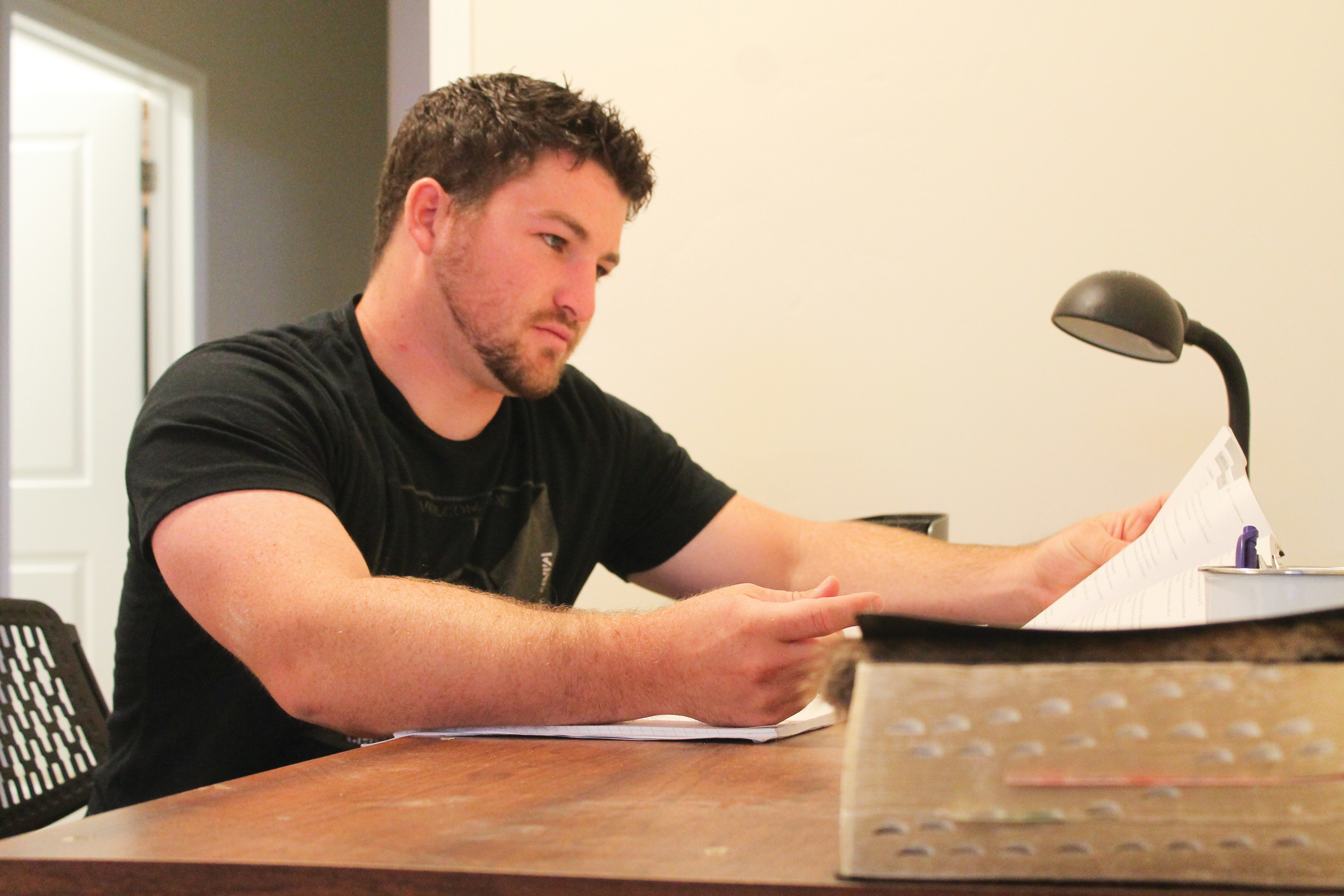Grades come before sports, athletes say
By: Morgan Pratt
Adelaide Bedke is from a small town called Oakley, Idaho. It is the kind of town Utah State University recruiters passed by when they were looking for athletes to join their track and cross country team.
“Nobody looks at Oakley’s athletes,” she said. “By the time I had gotten a hold of USU, they had already divided up all of their scholarship money.”
That didn’t stop Bedke from fulfilling her lifelong dream to compete in track and field on the university level. The coaches let her join the team as a walk-on and told her if she did well, they would give her a scholarship.
Bedke ran the 100 and 400 yard hurdles during her freshman year, though she is now a senior studying dietetics. She eventually had a stress reaction in her shins, which typically precedes a fracture. Her doctor ordered her to take off five weeks from training due to the injuries.
“You can’t take off five weeks of training for hurdles. There is no way you can stay in shape,” she said.
Her times lagged behind because she took a break from sports to tend to her injury. Bedke said she was unable to make the requirements to get a scholarship for being an athlete for the following year.
“I could have been a walk-on again, but it is too time-consuming,” she said. “I knew I could not work, do track and go to school.”
Bedke said she eventually had to give up her dream to compete on a collegiate team because she didn’t have a scholarship. Without that, she couldn’t continue to afford to put herself through college.
“I don’t have any money,” she said. “I didn’t want to go into debt. I didn’t want to get a student loan. I just felt like that wasn’t worth it.”
She said she made the hardest decision of her life to quit the track and cross country team and get a job working on campus.
“Unfortunately, track was going to end sometime,” she said.
Jeannie Woller, a senior studying creative writing, is an athlete for the girls’ varsity soccer team. She said learning how to balance school and soccer has also been an ongoing learning process throughout college.
“I can’t do one without the other,” she said. “I would go crazy if my whole life was just soccer or my life was just school. Having both of them allows me to succeed in both.”
Bedke said being an athlete also pushed her to learn how to effectively manage her time, especially after she spent up to five hours a day doing rigorous workouts.
“It actually made it almost easier to get my homework done, because I had a schedule,” she said. “I had an allotted amount of time to do my homework, and I had to get my homework done in the limited amount of time I had.”
The associate director for media relations, Doug Hoffman, said USU student athletes must maintain at least a 2.0 GPA from semester to semester. They must also be enrolled in at least 12 credit hours to practice and compete in their sport.
The girls’ varsity soccer team well exceeds that standard with an average GPA of 3.51, said Meagan Allen, the assistant media relations coordinator for USU.
Woller said the team gets together at the beginning of each year to set an academic goal both individually and collectively.
“We hold each other accountable to that goal,” she said.
Woller said athletes continually strive for success on and off the field because they have a desire to learn and to grow.
“They always stress to us that we are student athletes,” Woller said. “Student comes before athletes 100 percent of the time.”
— morgan.pratt.robinson@gmail.com or @morganprobinson

